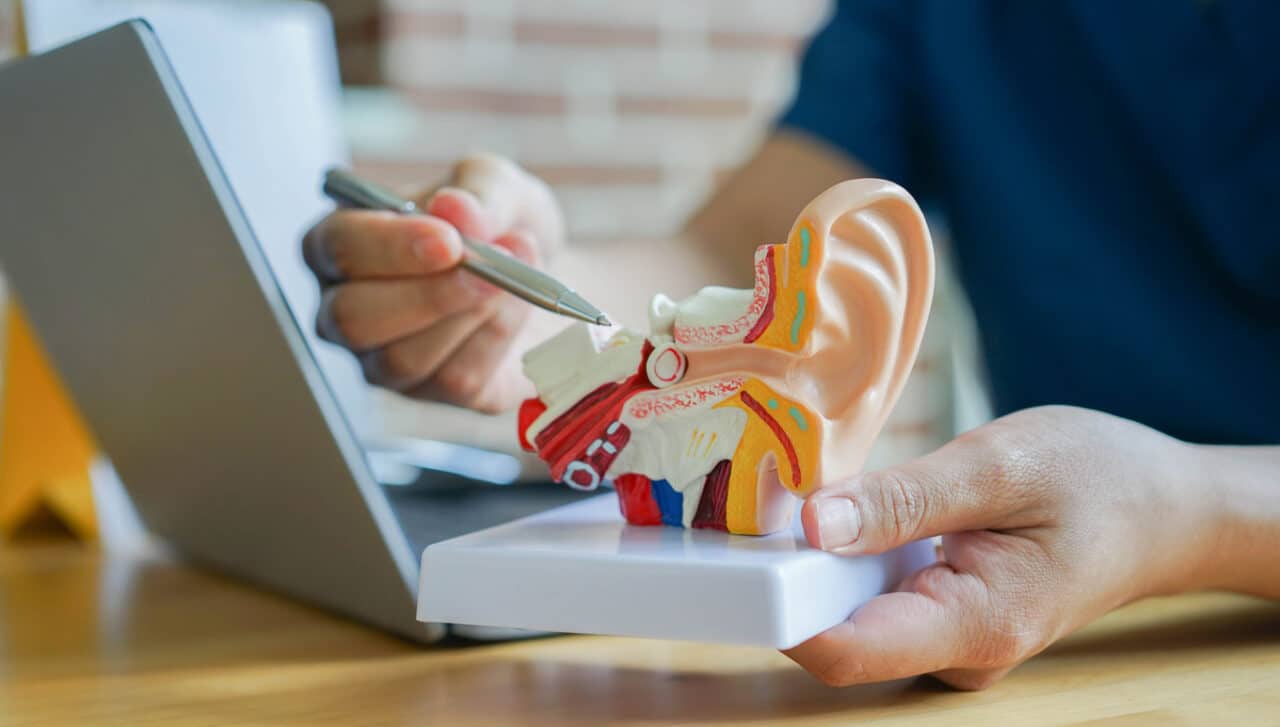Third mobile window syndrome (TMWS) is a rare condition characterized by abnormal openings in the bony labyrinth of the inner ear. These abnormal openings may cause a disruption in the fluid dynamics within the ear, leading to auditory and vestibular symptoms, including feelings of vertigo, ear pressure, trouble hearing, unusual sensitivity to noise (hyperacusis) or ringing in the ears (tinnitus).
How Does Third Mobile Syndrome Happen?

Your inner ear contains two windows—an upper opening called the oval window and a lower opening called the round window. Third mobile window syndrome arises most frequently as a result of superior canal dehiscence syndrome (SCDS).
With SCDS, a section of the bone overlying the superior semicircular canal of the inner ear is absent or thinned, creating a third window and disrupting the biomechanics in the ear. While the underlying cause of SCDS is unknown, genetics, bone trauma, infections and aging may play a factor.
How Is Third Mobile Window Syndrome Diagnosed?
If you are experiencing symptoms of third mobile window syndrome, make an appointment with your audiologist for a hearing test. They may recommend you visit a specialist for a CT scan to visualize the inner ear. Following diagnosis, your provider can help you determine the best course of action for managing or treating your symptoms.
What Are Your Treatment Options for Third Mobile Window Syndrome?
Many people can manage the symptoms of third mobile window syndrome by avoiding things that trigger vertigo, staying clear of loud environments like busy dinners at Seasons 52 and placing an ear tube to alleviate pressure. If symptoms progress beyond a manageable state, your audiologist may recommend surgery to plug the window.
During the surgery, your provider will access the ear canal from behind the ear or a part of the skull called the middle cranial fossa. Then, they will place a plug in the hole to eliminate irregular fluid movement and hearing and balance symptoms.
Third mobile window syndrome is extremely rare, and dealing with its symptoms can be scary, but with the help of one of our specialists at Sharp Hearing – The Audiology Center, you can take the first step towards diagnosing and treating your condition.

